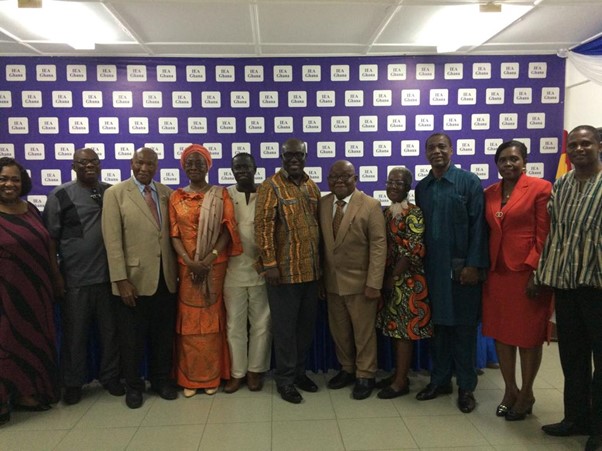Secretary-General of the Trades Union Congress (TUC), Dr. Anthony Yaw Baah, has emphasised the need to look at the poor treatment meted out to some public and private sector workers in the country.
In reference to Article 191 (b) of the 1992 constitution, which states that “a member of the public service shall not be dismissed or removed from office or reduced in rank or otherwise punished without just cause”, he asked that both public and private sector workers should be protected against individuals who wish to use their positions to the detriment of others – causing them to lose their jobs.
Speaking at the Institute of Economic Affairs’ (IEA) constitutional review seminar on the theme ‘Reviewing Ghana’s 1992 Constitution: views and reflections of the TUC’, Dr. Baah recalled how some public servants were dismissed without reason.
“In 2017, the current president’s secretary wrote a short, two-paragraph letter to public officers dismissing them with two-hours’ notice.”
Dr. Baah further explained that a worker who was affected narrated how an individual visited his office with a letter stating that he had been replaced. He said the practice is unfair and must be condemned.
Victims of such unfair treatment, according to him, refuse to take the matter to court – knowing the slow pace at which the courts administer justice and lack of enforcement in the country.
Focusing on workers in the private sector, the TUC Secretary-General said the union insists that article 191 be extended to private sector workers as well – because his experience in the private sector is that “workers in Ghana hired by Ghanaians and foreigners are not treated properly”.
Still on gaps identified in the 1992 constitution with respect to issues of labour, Dr. Baah called for the removal of Article 71 because of the element of discrimination between political elites and public workers.
“Those of us coming from labour are very passionate about article 71. It breeds discrimination between the political elites and public workers. We should not entertain it further; hence it must go. Why should some public officers be placed under Article 71 while others aren’t? We should get rid of it. It is not good.”
Additionally, he said, the Article is not consistent with International Labour Organisation (ILO) principles which say ‘equal pay for work of equal value’.
Dr. Baah also holds the view this country needs a constitution that promotes participation of women in governance, reduces unemployment among the youth and, more importantly, deals with corruption in the public service.










